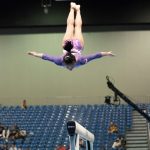As professional tennis players gear up for another day of their grueling tournament schedule, their nutrition becomes one of the most critical factors determining their performance on the court. High-intensity sports like tennis require immense physical stamina and endurance, which can only be achieved through an optimal nutritional regimen. In this article, we will explore how tennis players can improve their nutrition during tournament play to boost their performance and keep their bodies in optimal condition.
Understanding the Nutritional Needs of Tennis Players
Before diving into specific nutritional strategies, it is important to comprehend why tennis players have unique nutritional needs. Tennis is a physically demanding sport requiring high levels of endurance, speed, agility, and strength. Consequently, the nutritional requirements of tennis players differ significantly from those of the average individual or even athletes in other sports.
Cela peut vous intéresser : How can gymnasts use proprioceptive training to improve balance and coordination?
Tennis matches can last anywhere from one to five hours, depending on the intensity of the match and the level of competition. During this period, players burn an enormous amount of calories and lose significant amounts of fluid through sweat. Therefore, maintaining energy levels and hydration becomes crucial for peak performance.
The Importance of Carbohydrates
Carbohydrates are the primary fuel source for high-intensity exercise, making them a key part of a tennis player’s diet. Tennis players require a higher proportion of carbohydrates in their diet compared to the average individual to meet their energy needs.
Dans le meme genre : How can gymnasts use proprioceptive training to improve balance and coordination?
A tennis player’s diet should ideally consist of 55-65% carbohydrates, particularly complex carbohydrates like whole grains, fruits, and vegetables. These provide a steady stream of energy during prolonged physical activity. Moreover, consuming carbohydrates a few hours before a match can help replenish glycogen stores in muscles, ensuring players have enough energy for the duration of their match.
Protein for Recovery and Muscle Building
Protein plays a vital role in muscle repair and growth. After a grueling tennis match, the body needs protein to repair muscle tissue and promote muscle growth. This is particularly important during tournaments, where players have minimal recovery time between matches.
Nutritionists recommend that tennis players consume 1.2 to 2.0 grams of protein per kilogram of body weight daily. This can be obtained from lean sources such as chicken, fish, eggs, and plant-based proteins like beans and lentils. Post-match, a protein-rich snack can help kickstart the recovery process.
Hydration: The Key to Sustained Performance
In the heat of a match, tennis players can lose up to 2 liters of fluid per hour through sweat. This loss of fluid and electrolytes, if not adequately replaced, can lead to dehydration, reduced performance, and even heat illness.
Hence, tennis players should focus on hydrating before, during, and after their matches. Drinking 500ml to 1 liter of water 2 hours before the match and sipping on sports drinks during the match can help replace lost fluids and electrolytes.
Timing is Everything: Pre-, During-, and Post-Match Nutrition
The timing of meals and snacks can significantly impact a tennis player’s performance and recovery.
Pre-Match Nutrition: A meal 2-4 hours before the match can help fuel the body. This meal should be high in carbohydrates, moderate in protein, and low in fat. A small snack just before the match can top up energy levels.
During Match Nutrition: Consuming carbohydrates during a match can help maintain energy levels. Sports drinks, energy gels, and bananas are great options.
Post-Match Nutrition: After a match, the focus should be on recovery. A combination of carbohydrates and protein can help replenish glycogen stores and aid muscle repair.
Incorporating these strategies into their nutritional regimen can help tennis players optimize their performance during tournament play. Remember, everyone’s body is unique, and what works best for one player may not work for another. Therefore, it’s always recommended to work with a registered dietitian or sports nutritionist to create a personalized plan.
While the demands of tournament play can be challenging, making smart nutritional choices can ensure players are fueled and ready to perform at their best on the court. It’s not just about training hard; it’s also about eating smart to unlock superior performance. After all, in the world of competitive tennis, every advantage counts.
Prioritizing Healthy Fats to Support Energy and Reduce Inflammation
In the pursuit of performance optimization, the role of healthy fats often gets underestimated. Fats, especially unsaturated fats, serve as a rich energy source for tennis players and contribute to the absorption of essential vitamins and minerals. Besides, these fats also have anti-inflammatory properties, beneficial for recovery after a strenuous tennis match.
For a tennis player, 20-35% of the total daily caloric intake should come from fats, mostly from unsaturated fats. Foods like avocados, nuts and seeds, olive oil, and fatty fish are excellent sources. Including these foods in the daily diet can support prolonged energy during match play, reduce inflammation, and improve overall tennis performance.
The timing of fat intake also has an impact. While fats can slow down digestion, which is not ideal before or during a match, consuming healthy fats in the post-match meal can promote recovery. With the vast amount of research available on the topic through resources like Google Scholar or PubMed, players can put together a nutrition plan that incorporates healthy fats effectively.
The Role of Vitamins and Minerals in Tennis Performance
Vitamins and minerals play a crucial role in a tennis player’s health and performance. These micronutrients aid in energy production, boost the immune system, promote muscle recovery, and prevent oxidative stress. Deficiency in essential vitamins and minerals can impair performance, delay recovery, and increase the risk of injuries.
Tennis players should aim to get these micronutrients from a balanced diet rich in fruits, vegetables, lean proteins, whole grains, and healthy fats. For instance, calcium and vitamin D are critical for bone health, iron supports oxygen transport, and vitamin C aids in collagen production and immune function.
Considering the high-intensity nature of tennis, it’s prudent to keep an eye on the intake of specific micronutrients. This is where resources like PubMed and Google Scholar can be instrumental in accessing the most recent scientific research on nutrition in sports sci.
Tennis is a demanding sport requiring a meticulous approach to nutrition for optimal performance. From carbohydrates for energy, protein for muscle repair, hydration to prevent heat illnesses, to the importance of timing meals and snacks around match play, every aspect plays a pivotal role.
In addition, the significance of healthy fats and vitamins and minerals should not be overlooked. They support energy production, reduce inflammation, and aid in overall health and recovery. Players should leverage resources like Google Scholar and PubMed to stay updated on nutrition research.
Perhaps the most fundamental takeaway is that there is no one-size-fits-all approach to nutrition in tennis. Individual needs can vary, hence the importance of consulting a registered dietitian or sports nutritionist. By personalizing their nutrition strategy, players can unlock the full potential of their bodies and significantly improve their game during tournament play.
At the end of the day, good nutrition is as much a part of training as time spent on the court. The right fuel can make a significant difference in a player’s ability to perform and recover. In the fiercely competitive world of tennis, making smart nutritional choices could be the winning edge a player needs.











